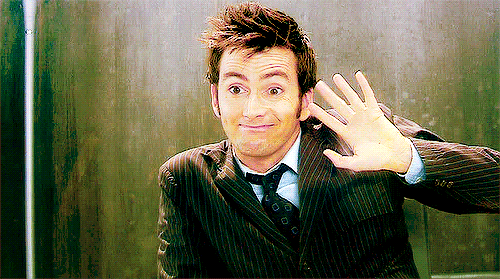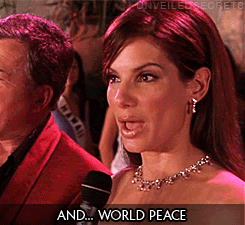Allison Hurd's Blog, page 15
April 9, 2017
A Little Honesty Definitely Hurts
This year is sprinting faster than I could have guessed. It’s Easter next Sunday! What is going on?
I am reviewing my resolutions, so that I have sufficient things to feel guilty about leading up to real start of spring.
“Just A Taste” is still on the back burner, because I’ve been focusing on Blood And Bone. And that is going a bit more slowly than anticipated because I am really working hard to smash oppression and also get healthy. I am busting up personal lifting records like it’s my job, which is sort of a shame because, of all the things mentioned in this paragraph, it is the only thing not actually my job. I’m in negotiations with myself about this, and hope to have a resolution shortly. Maybe I’ll just become a professional body builder? Is 29 too late to start down that path? Won’t any of you just pay me to eat food and drop heavy things please?
No? How about reading other people’s books, because I’m crushing that, too. It occurred to me if I read at the fairly doable pace of two books a month for the rest of my life, I’ll only have time to read about 1000 more books, which made me so panicked about how few books that is, that I’m reading closer to four books a month. I’ll likely settle at three in the near future; right now I’m playing hardball with myself. My book selection has been good overall, but I keep finding again and again that popular things tend not to meet my (probably unrealistically high) expectations. But I remain an optimist. Come discuss books with me on Goodreads!
The real thing that’s been weighing on me is item four of my Resolved post. I retook the Pennsylvania bar in February, and I passed it as of last Friday. It was an immense relief to have that be over with.
This was a journey I never thought I’d have to take and one that I struggled with for the past year or more.
You see, in 2015 I graduated law school, took off from work, and drove myself crazy for two months to study for and take the exam in PA and New Jersey. Being a lawyer had been my focus for over a decade. I had given everything to that pursuit, sacrificing relationships and sanity for this dream of mine. This last leg was hands down the worst time of my life. I passed New Jersey. I missed PA. By one point.
[image error]We adapted to that routine.
It was the most disappointed with myself I’ve ever been. I grieved, not just the time lost and the dashed expectations, but I felt like I had betrayed myself. I am pretty good at getting the things I decide I need. My failures in life had, to date, been things like getting B’s instead of A’s, or adding too much pepper to soup, and, okay, several years of fighting with my mental health. My family calls me the Energizer Bunny, because I tackle things, and love tackling them. I am queen of biting off more than I can chew, and willing my jaws to get bigger until they comply. And then this happened, and I was thrown into a tailspin.
Why am I telling you this? It was embarrassing for me and I hate the pity or sympathy that follows that part of the story. Passing now doesn’t change the fact that I will always, with some small part of me, feel like I let myself down.
But here’s the thing. I am a real human person. It is easy to feel proud of yourself when things are going well. It’s easy to feel like you deserve what you have when things move in straight lines. But this is life. The lines get wobbly. You can either bend with them, or shatter.
There were a lot of things that kept me from shattering, like the people I love. Even so, I was resistant to bending. I like those neat, straight lines, bruh. But in bending, I conceived a book series, I took over branding for a new product, I learned a lot in a new job, got physically strong, met new people, and took a dose of medicine that will keep me healthy for some time to come.
And here’s the thing. It could always be worse. So many of you in my world I have watched hold yourselves together through much bigger storms. Worse is always relative. But this was my worst, and I am now able to look back on that chapter and know that I can handle the next storm, because this one showed me what needs shoring up. Our bodies are not built for straight lines. They have curves, and skin that heals, even if our past experiences leave scars.
I know that I got better from this experience. I have a longer list of things crossed off my list than I gave myself credit for, and I imagine it’s the same for you. I hope we all have more to remember than just the injury, and that we find new angles to ourselves as we bend. Stay limber.


April 2, 2017
Don’t Go Breakin’ My Heart
Vulnerability.
The space that allows us to feel and connect to our fellow humans. The painful, chaotic emotion that links our internal life with our external one.
It is sacred, a deep need to be one of the many in our world. This is why we watch shaky phone videos of people comforting strangers in public, and why we pay companies thousands of dollars to lead employees through trust falls and blindfolded mazes.
It’s why 90% of people love Colin Firth.
 If Elizabeth ever leaves you…I’m here.
If Elizabeth ever leaves you…I’m here.It’s not easy in real life, and it’s often harder in media. In real life, we choose our moments. We have organic instances of opening up one of the pockets in our beings and sharing the contents with whomever we deem safe. Not so in media. Actors have to summon that up about a person they are not, in front of people all just working for the weekend, and then editors have to connect and draw out that thread of empathy. But at least in visual media, we get expressions and micro-expressions. We are built to mimic the mood of our social group, and often those context clues can lead an audience to a state of mind close enough for Hollywood.
In writing, we don’t have that. It’s all painted with words. The only context comes from whatever the audience has seen before in the story, and whatever life they pump into the words through their own experiences.
There seem to be three large camps for how authors tend to do this.
Show And Tell
In this, the author knows exactly how whatever is going down goes down, and wants you to see it in HD. You get something that tends to read like a (hopefully) well done Live Journal (or MySpace, or Tumblr poetry post) entry. This picture is at least 10,000 words and quite fussy. This is often employed in YA books and romances–particularly period pieces. It can be very well done (think: Holden in The Catcher in the Rye and even in more mature classics such as Anna Karenina) but it can also be overwrought. Striking a balance is very delicate work. If it has expressions like “I knew in my heart of hearts” in it, it likely has gone too far. This seems to work better for pieces that are more character studies than plot-driven works, and should be used cautiously elsewhere.
In acting, we say always show the audience, never tell. It’s largely the same with books. Elizabeth and Darcy in Pride and Prejudice don’t try to describe exactly how they fall in love in every single page. We are shown, with the care they take around each other, and the new meanings given to past conversations through new revelations.
Mutually Assured Destruction
Humans as a group tend to have certain hurts in common. For example, there are websites dedicated to warning people about movies and shows that have animals dying. Loss of a child or sibling or active guardian. Prolonged sicknesses that change the person we knew. These things are like the Staples Easy Button™. You hit them, and miraculously, people go “aww!” or maybe even start crying!
There are times this is really critical to stories. The Notebook is a sappy romcom if it’s not actually a tragedy about Alzheimer’s. There are a lot of memoirs about learning to live with a new disability that are being honest with us. Where the Red Fern Grows is just about coping with a pet dying as a metaphor for growing up, and the story is emotionally honest with us the entire time. It’s not doing this to hurt us, it’s doing this to communicate one vulnerable thread of someone’s life. The pain goes both ways so we can share it.
And then the rest make me think of radio shock jocks. You’re just bullying readers. This is called “exploitative” writing because it knows our cheat codes and is keying them in relentlessly. “Game of Thrones” the TV show does this a lot. The Sansa rape plot added nothing to the story. Actually, most of what they did with Ramsey added nothing to the story. You beat women and and flay a dude until you break his mind. We get it. You’re a bad guy. Adding the bit with rape was just an easy way to connect the audience with Sansa’s horror, and it makes it less poignant. We feel betrayal, that we had extended our vulnerability and got kicked for it. We see how clumsy the attempt at drama was and are clobbered over the head with some moral. The end of Mockingjay was, for me, essentially torture porn both physical and emotional and I was angry that I had been made to feel for these characters just so the author could make me watch her eviscerate them. We need to be very careful that our “bad things happen” plots make sense and are handled with emotional honesty. Otherwise, you’re the asshole comparing millenials to cancer in front of a millenial who just lost her mom to leukemia.
 Oh, no you did not.
Oh, no you did not.It is my opinion that artists have a grave duty to their public, to use their art responsibly. We should offer mirrors and places where it’s safe to fall apart without punishing people for trusting us when we ushered them in to our exhibits. Please consider the point of pain before inflicting it on others.
Plant An Idea
This is where authors say just enough to invoke an emotion and let readers fill in the rest, like an octopus in a tube. You say enough that people understand what the character is thinking about and you let it go.
This one is my personal favorite but it can be dicey. Done right, it is both responsible and devastating. I think Margaret Atwood is reigning queen of this tactic. In The Handmaid’s Tale, we don’t wallow in what is quite honestly probably one of the saddest, worst things a human can be made to endure. We never have that pity party. There are small lines like “Better never means better for everyone” that convey a lot quickly and leave the reader to introspective thought about how much we’ve struggled for better and found only new hardships.
The struggle of this tactic can be seen in Harry Potter and the Order of the Phoenix. Readers either found Harry to be suffering from a sort of mental breakdown due to PTSD and the stress of being seen as a savior at sixteen, or whiny and self important. Her clues were all wonderfully subtle and honest, and readers interpreted them as they saw fit. Which is not to say that JK Rowling isn’t a master of this strategy in her own right. Need I say it?
 OH LAWD! I AM UNMADE.
OH LAWD! I AM UNMADE.One word brought the weight of our collective empathy to bear and it broke us. So that’s the risk and reward. You may miss the mark and what for you reads broken others read as obnoxious. You may hit it spot on, though, and your character will ascend to a hallowed space for the martyrs of literature.
However you choose to do it, I pray that you never let your audience hit the ground in your trust fall. The vast experiences of humanity are full of sorrows noble and small, and can be woven in ways that unite us. When instead we betray the relationship between artist and audience, we may have been able to invoke a feeling, but likely we will not be given that chance a second time.


March 26, 2017
THIS Blurb May Cost Them Their Lives
Wouldn’t it be nice if blurbs were honest? If they could just tell you why a book is cool, and who would like it?
“This book is rill good. It’s got a mermaid protagonist, which is new, but she’s also a space mermaid? And we explore life in a vacuum through her eyes. Great science moments, a lot of mythical references, fast writing. Dive in.”
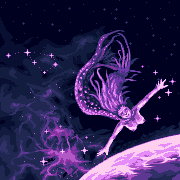 Credit: LakeIezz
Credit: LakeIezzAlas. We are humans, and therefore will only believe that something is good if we make it extremely complicated.Our brains are so conditioned to accept things that we know aren’t true, that we believe that knowing the thing is more or less a lie allows us to determine how far from the truth a thing is. We know the pristine, juicy, plump-bread-covered sandwich from the fast food joint is going to be steamrolled, tough and any vegetables on it likely had to be re-hydrated and dyed prior to consumption. We know the sumptuous photos of a hotel will likely reveal a seedy (sometimes literally) underbelly. And book blurbs tend to make even Anne of Green Gables read like a psychological thriller.
Anne was tragically orphaned, and sent to live as unpaid labor for a brother and sister at their ancestral homestead. Unwanted, unskilled, and unable to escape her fate, Anne must use her wits and her charm to survive. But the townsfolk know she’s not one of them. How long can she fight back before something breaks?

But this is what we expect! A book better come with a blurb. Or at the very least, a riveting out-of-context paragraph. And y’all, these things suck to write. I would say I spend at least a day (about 5-8 hours) writing each one, and I have all my beta readers comment on it. You see, the shorter a piece of writing is, the more careful you have to be with word choices.Every word needs to communicate something: an idea, a tone, a feeling. And, as this is essentially a trailer for a book, it needs to be captivating and detailed, but manage not to give away anything you hope the reader learns organically. If you’ve ever written a blurb, you know the struggle. If you’ve not had that joy, go ahead and try it for your favorite book now. And tell me how it goes.
I think part of it is that they’re not natural. Who talks like that? Does anyone go up to their friends and say “Y’all need to read this book. Character Protagonist just wants to live a simple life. But Opposing Force is opposed. So, Character Protagonist must choose: Is desire more important than this other important thing? Sometimes, the answer isn’t easy.”
NO! We say “Hey dude. I think you’d like this book. It’s got that trope you like.” And really, which are you more likely to buy? The over-wrought blurb with the question whose answer will always be “yes?” Or the one someone you know says is good? I guess what I’m saying is that booksellers should employ friends to stand among the stacks and personally recommend things to every potential buyer. Please, Amazon, get on that.
I have begun working on the blurb for Blood And Bone not because I’m anywhere near done, but because I had an idea that I didn’t hate for it, and because I’m trying an experiment. I believe that I might find it easier to write my blurbs if I write the cursed thing after the full outline is complete, but before all the writing is done. I think knowing the story, but not having all of the world coursing through my mind may make it easier to determine which details are important. I think it worked, too. I think I have at least 95% of the content as I want it, with a little wiggle room for smoothing out word choices.
No, you can’t see it yet. Sorry.
But! As I tricked my friends into helping me with this most-tedious process, it evolved into a revolt against convention, and a plea for honest blurbing. So, I will share with you some of their honest blurbs.
For the series:
[image error]
[image error]
For Blood And Bone:
[image error]
[image error]
I think these are sufficient. You see how they capture the essence, the true tone of my thousands of hours of work? Masterful. Good work, gentlefolk.
And now, if you’d like actual help writing a real blurb, go check out Libbie Hawker, who is much less frustrated and a jillion times more patient than I. Trust me. These tips do make blurbs way less painful–more like a broken arm than a burst appendix.
On that note, enjoy! See you next week, and be sure to check out my Facebook page for snippets and notes from the upcoming works!


March 18, 2017
Goodbye, I’m Joining a Cult
Hello. The author you’re seeking to contact is not here right now. Please leave your feedback at the beep.
BEEP!
Yes, y’all that’s right. I have left and joined a cult. Don’t worry though, it’s a very impermanent cult, and I’ll be free of it by Monday. What’s that you say? How did I come to join a cult? Well, you see, it used to be a political platform wherein we tried to get the nicest person we knew to run for president by throwing a big party for all our friends. Alas, it didn’t stick, and we hadn’t the heart this year to discuss politics. So instead we formed a cult for the nicest person we knew.
You know what? I don’t need to explain my life to you. Suffice to say, I am hanging out with my friends this weekend, and therefore not doing grown up things, like chores or writing. See you next week, where I’ll be quite sorry I didn’t do chores and very glad to be writing again.


March 12, 2017
Gender Reveal For Books
IT’S AN URBAN FANTASY MYSTERY!!!
Thank you! Thank you! Yes, we’re very proud. We thought we’d be writing another urban fantasy mystery, but you never know if your brain has other plans.
We intend, of course, to dress it as a traditional urban fantasy mystery–you know, subdued colors, bold, supernatural or gruesome images. Because heaven forbid you inject some color into a UF book, suddenly everyone’s sure it’s a paranormal romance! It’s hard for a young book these days, until it speaks for itself.
Who’s it for, you ask? Who is supposed to like mysteries about mythological creatures? Well…we’d kinda hoped everyone who thinks that sounds like a good time. But it’s not that easy, is it? There’s a whole process about who gets to read what books that has nothing to do with the book.
How do you pick your next book?
This is a whole science. There are people whose entire working careers are focused, laser-sighted, on researching this. We make a dozen decisions before we even touch the spine of a book in the store, or hover our mouses over their titles. Title, Cover, Author, we glance at them, weeding out those that we’re certain weren’t written for us.
Because “don’t judge a book by it’s cover” is not only often poor advice, it’s also our favorite to ignore. Of course we judge a book by its cover. Someone spent years of their life researching for and likely dozens or hundreds of hours working on that cover. It’s in the pageant now. Judge it.
From the author, title and cover, we pick up genre, tone, and hopefully something of the content, or the manner of its telling. We get that The Wizard of Earthsea is going to be a totally different experience than The Moon Is A Harsh Mistress, even without additional context. Then, the covers flesh out what the title started, grounding us in the world we’ll inhabit if we choose this book as pageant winner. That makes sense, right? We know what types of stories we’re in the mood for, and a good publisher will establish important elements in the conception of the book. We know that more serious books tend to be simpler–austere, maybe, or shadowy. Humorous books tend to have louder colors, or something inexplicable for us to ponder, for example.


And then gender happens.
There are three ways gender inserts itself into the decision. 1. Author name 2. Coloring and content of the cover and 3. Main character’s gender.
Author name is what led Mary Ann Evans to write as George Eliot and how Joanne Rowling became JK Rowling. It is assumed by many that books written by women are going to be about specific subjects, or employ specific writing techniques. It will be flowery, about romantic things, with too-long lists of adjectives, and…like elven princes and stuff!
[image error]No! Not at all like this! It’s totes different!
It seems people are getting over this, slowly. Not entirely, and certainly there is likely an unconscious bias that weaves its way into the process, from the agent or publisher selection process, to the advance reviews of that book, the consumer’s choices, or thoughts on the book with the author somewhere in the reader’s data banks, filed away with whatever word associations we have for authors like this one.
Once you’re past the name, there’s the cover itself. For example, I know that men are most drawn to orange and blue books. I had to know that, because women readers are more accepting of brighter or more varied hues, and if I wanted men to read my book without assuming a pen name or changing my story, I had to be extremely careful with all of my artistic choices.
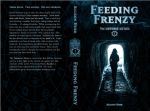
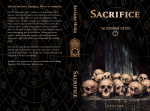
I had to make sure the blue of Feeding Frenzy registered mystical but not ethereal, because a blue too blue might have convinced some readers that this was a book for tweens and therefore…women. Who are, of course, the same market as fourteen year olds, in some bizarre association.
Gender of main character is a big one. The internet is full of fascinating reasons why people should write their own genders and women main characters aren’t relatable. I don’t really want to reiterate it here because of course that’s hogwash. Either the story is fictional, and we should be able to explore the fiction, or the story is real life, and as no human experience is completely isolated, someone will relate to it. We can go into why it’s so hard for authors to capture compelling characters, but to think one character can’t be interesting because of any inherent traits seems suspect. You’ll either like the writer’s style, or you won’t. The character is simply a vehicle of the telling.
I bring this up because as readers and writers, we should be aware of our biases. It is an interesting experiment to review your books and note their colors, fonts, and the authors that wrote them. Check out your own shelves. I personally only have three pink books, and one is a textbook about the economic systems in Europe. How many are by women? What books do you recommend? How many have main characters who aren’t men or their love interests? It’s good to do this, not because you need to change! But because it’s a telling exercise about what it is we like, and what gaps we might have in our understandings. For example, I fully intend to go buy a blue European economics book now, to make sure I’m getting a balanced view.

Wink.
How do your stacks stack up?


March 5, 2017
Writing Through It: The Everywoman’s Guide to Getting ‘Im Done
There are a million guides out there from people infinitely more prolific and rich than I on how to hone your craft, finish the book, and stay focused.
But let’s be realistic. We’re not Stephen King. We’re not Brandon Sanderson. They are icons, jewels, squad goals. They are hardly people I’d call average. I may even lovingly call them abnormal freaks who make the rest of us look bad. With so much love. Please keep writing, gentlemen.


So where does that leave us? Us, with the day jobs and families and a need to eat and binge watch things as they come out? Us, with the yogurt-crusted laptops which double as writing machines and entertainment device?
First, I think you have to know what you’re getting into. They say in athletics, the stars aren’t the people who love playing and winning. It’s the people who love the process who [image error]go far. There’s a lot more practice and conditioning in football than there are games. And though I apologize for bringing sports into this, I think it’s the same in writing. People think it looks like this:
Step 1: Spend a furious month writing the perfect story
Step 2: Send to a publisher
Step 3: Next JK Rowling
When really it’s more like this:
Step 1: Doggedly pursue your story for months or years
Step 2: Ruthlessly edit your story for months or years.
Step 3: Have other people ruthlessly edit your story for months
Step 4: Revise for months
Step 5: Search for an agent for months
Step 6: Self-publish or wait months or years for a publisher
There’s debate about whether or not books are like babies, but I think for this purpose, it’s apt. You’re making something to which you have a responsibility, and it will not grow or move out unless you coach it the entire way.
I prefer editing to writing. Writing takes the most out of me, unless I hit flow–that sweet moment where everything clicks and you feel like you’re just a conduit for your work. But I love editing. It’s all so much clearer when I can see where I was going and where I ended. Tearing apart the words I crafted and welding them back into a better form is endlessly satisfying to me.
Once you’re sure you like writing and not just publishing, it’s the same as anything else you put your mind to. Have a plan. Set goals. Stick to it. Forgive yourself when the plan falters, but don’t let yourself off the hook.
PLAN
How do you commit best? Do you need dedicated time and space? Do you need a buddy and accountability? How much time do you have to give to writing? Be honest with yourself. It’s possible that coffee shop culture or a library will be your best friend every weekend. Maybe you’ll benefit from an adult ed weekly (or daily) seminar that pulls you out and focuses you more directly. Maybe right now life is too chaotic, and you can only write a weekend at a time when you book a cabin and leave the kids, the laundry, and the phone for someone else. Maybe you suffer from graphomania and can’t actually stop writing, but what you need is to impose structure on your time so that you focus on one project at a time. Size yourself up. Tailor something to the person you see in the mirror.
SET GOALS
Make these concrete and measurable. A word count per day. A chapter finished a week. A readthrough by your birthday. Whatever it is, set it and gauge off of the plan how well you’re doing. This not only helps focus you, but gives you the small moments of accomplishment we need to stay engaged. We love checking things off the To Do list. Same deal. Gauge and re-calibrate the plan as need be, but don’t set the bar too low. You know yourself best. Are you competitive? Aim high. Are you easily discouraged? Pick something safe but still noticeable: two pages a day. A chapter a month. Don’t let yourself out of the work, no matter what though. Nothing ever comes from nothing.
STICK TO IT
You were honest with yourself, right? You knew this was going to be work, you looked at your schedule and made something realistic for your personal quirks and timelines. This is where you learn whether or not you love the game or the work. Can you stick to it? If not, but you do love the work, then something was off with your plan. Things change, and that’s okay. Revise your plan or the things that get in the way of your plan. No excuses. You can’t be a writer if you don’t finish writing.
FORGIVE YOURSELF–BUT FOCUS
Oy. This one is the killer. Raise your hand if you’ve blown your new eating plan/diet because someone offers you one treat, and you figure that since today is now apparently a cheat day, you might as well enjoy a The Purge style frenzy of hedonism.
[image error]
The cookie wasn’t what ruined the plan. Have a damn cookie. Take a break in your scheduled time to catch up with a friend or to work on another project. Writing, like all endeavors, is best seen as a life change rather than an austerity measure. But know what you’re signing up for, and then account for it. If you know you’re busy this writing day, see if you can bang out an extra couple hundred words every day for a week before, or a week after. Maybe come home and edit a chapter instead of adding something new, or keep part of your schedule today but allow yourself to cut back today’s goals.
Enjoy the marathon! I’d love to hear your plans and goals, or how you stick to them!


February 26, 2017
Failing Is For Everyone!
We like to qualify failure. “You’can’t fail if you try. If you get back up. If you persevere. If you learn something.”
The semantics police have the line between failing and not succeeding on lock down.
But I’m here to politely request that folks stop tellin’ me whether or not I’ve failed at something. I have! I have failed a lot of things! Those are my screw ups, dammit, and they were important to me.
Risks are part of growth. Sometimes the risk doesn’t work out–that’s how you know it was a risk. It can be a huge blow to our confidence, but failure is simply part of success. Ask how many things the great innovators, entertainers, and moguls have tried that didn’t really move the dial any. See, the thing is, to be a success, you don’t need everything to work out for you. You just need the one thing. You do need to learn. You need to be able to take your lumps and be flexible enough to keep from breaking when you do. It isn’t that it will stop you from failing. It will us from being failures. That’s where I draw the semantics line in the sand.
I fail a lot. Jokes won’t land. Typos abound in my first drafts. Sometimes, whole stories need to be scrapped. Does it feel good? Not really, no. But neither does progress. Progress is grueling, yucky work that is way less fun than sitting on the couch, eating ice cream and watching Netflix. Progress is work. Failing is sucky. C’est la vie.
[image error]For example, this is an epic curly hair fail. But an 80s freakin’ win.
I share this with you not because I’ve decided to turn into a motivational coach, which I think my penchant for no-no words and harping on how hard it is to get anything worth having precludes me from, but because I’m removing “The First One’s Free” from the shelves. It was the first short story I ever wrote, and it met all of my criteria for the story I was trying to tell, except what I’ve learned is a critical part: I didn’t like it. I am not proud of it. It had all the story parts I thought it should have, but it’s not enough. I don’t love my story, and I don’t think it’s having the effect I want–probably because it’s not offering the effect I want.
So, significant lessons learned about short stories and my own way of thinking, I will release “Just A Taste” which I already like much better as a story, and I will rework and re-release “The First One’s Free” when it’s up to code. I failed the first time. But I won’t let it fail again.
[image error]But, like all good monsters, and several iconic though dated Terminators, they’ll be back!


February 19, 2017
Wake Me Up Next Week
It’s all just sitting there. Taunting me.
All of the things I want are staring back at me from where I sit on the couch, trying to make sense of this work I have to do and dreaming about things like painting over nail holes.
Is this what I’ve become? A nail-hole dreamer? Am I so reduced that even the thought of laundry seems like a novelty?
Ugh. This week can’t end fast enough.
This time next week, I’LL BE WRITING AGAIN. It’s gonna feel so good. Like, “avert your eyes now,” good. Real life is poo, but luckily my latest time sink is about wrapping up. Even so, Blood And Bone is already about 10,000 words and mocking me. It’s just sitting there on the other side of things going “Oh, this critical reveal? You wanted to tell everyone about how Summer found out about Maithe Dweubhal (by the way, that is pronounce Mayth DEY-vull)? You wanna know why Lia still banishes things when she could totally just chill out and paint things all day? You wanted that?”
Why is everything so mean?
It is mean because I am a dedicated biatch, and do things I hate because they’re good for me, mostly. Well. That and sometimes the things are ignorant and aggressively afraid. But mostly the first thing.
I will also be starting on the shelving around my fireplace, painting over those damned nail holes, and buying ALL THE WINE.
[image error]Look at it, flaunting its coves. Even the cat knows it’s being rude.
May your week be as good as nail-hole painting and as exciting as writing about being fourteen.


February 13, 2017
Book Love is Best Love
And then you make the monster go away! Really, it's the perfect kind of date. And it's on sale! But hurry, Feeding Frenzy, like a bouquet of roses, gets more expensive tomorrow!
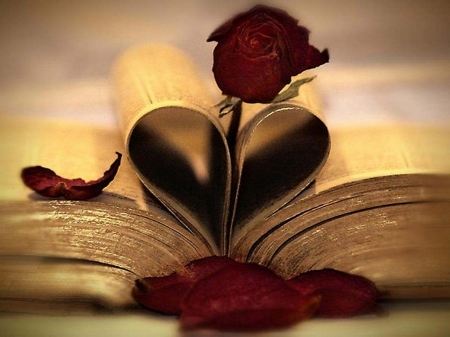
February 5, 2017
A Ride Up Memory Escalator
One time, my parents thought it was cute to allow me to abduct myself in New York City.
My sister could walk by herself, so I was seven, maybe eight, and we were going to New York for the day, I think to see the Rockettes Christmas Special, which was the first and likely only time I will have the pleasure of watching so many people executing so many perfect and ineffective groin shots in unison.
Uncle Bob was with us. He had a forest green winter coat, and had taken lead, as he worked in the city and knew the best ways to deal with Manhattan. (Well. Second best ways, since the first best way is to visit other boroughs instead.) My family piled onto an escalator to get us from the station to the street and I reached up for my uncle’s hand. I think I was singing a Christmas song and making faces at my reflection in the escalator.
I turned back to say something to one of my parents and saw them all smiling bemusedly at me. Next to them, my uncle made that face that grown ups make when they think a kid is being cute, but they don’t want to seem condescending. It still is, by the way.
Hang on.
If he was behind me…
Slowly I returned to facing forward and looked up at the forest-green-coated man whose hand I was holding. He beamed down at me and said “hallo.” He was tall, taller than my uncle, how did I mix them up? He was younger, too, and he had glasses.
It turns out, I had befriended a German, and almost allowed myself to be adopted.
[image error]My recommendation on where to go for new friends.
I am sure my parents would have stepped in before I’d signed the papers (though knowing them, likely not without first getting a picture of me sounding out the words) but this stranger, who had probably come to site-see on a vacation that was blissfully free of all responsibility and small people grabbing him, had held my hand and kept me safe in the city of Home Alone 2 fame.
I could have been burgled! I could have been napped! Instead I was guarded.
Why am I telling you this? Partially because it is a memory that makes me laugh, and I am in desperate need of some levity. Partially because I am proud to live in a place that welcomes all, and throws them together in unlikely ways, which has been on my mind a lot lately.
And partially because it’s just a longer and more valuable story than the time my parents let me get eaten by a pink turkey. Don’t worry though. I got him back.
I hope this week is good to you, and that when you reach out to someone, they keep you warm and safe, even if–especially if–you are strangers to each other.



